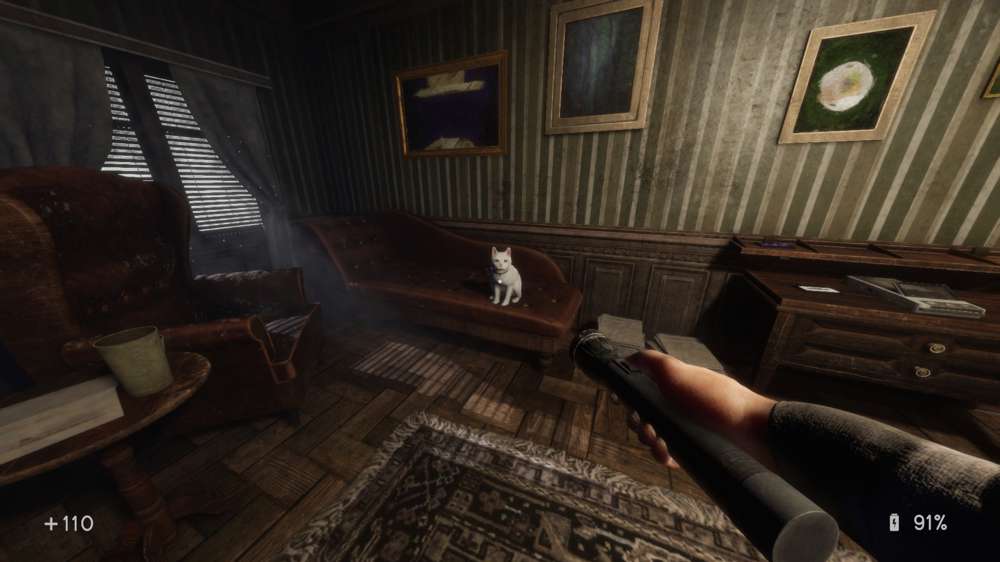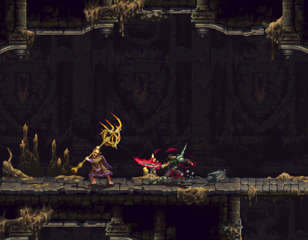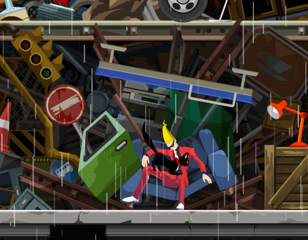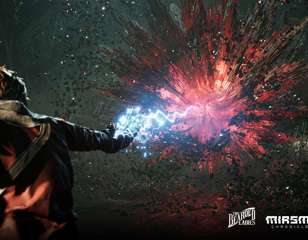In Sound Mind Review: "Not Conventionally Scary, But Disturbing And At Times Uncomfortable"
In Sound Mind is a psychological horror game that tackles subjects like therapy and mental illness, but how does it fare?

The best psychological horror always aims to take you to dark and uncomfortable places, lifting back the veneer of normalcy and forcing you to inhabit the most despair-ridden parts of the human psyche. In Sound Mind makes an honest attempt to follow this blueprint but falls short of a truly memorable experience due to a lack of focused structure, technical shortcomings and an unwavering commitment to overstaying its welcome.
Overcoming Their Trauma

In Sound Mind is a first-person action-horror game that follows therapist Desmond Wales as he tries to make sense of his own mind and the predicament he is suddenly dropped into. As Desmond, you begin the game waking up in a decrepit, industrial looking basement with no recollection of how you arrived there. As you move out of the basement to explore further, a few things become clear: you’re being stalked by something sinister, the reality you inhabit doesn’t much resemble reality at all, and the mysterious events surrounding you somehow involve your patients.
After snooping about the building and discovering the other floors, you find Desmond’s office (which acts as a sort of hub) and a series of unnaturally illuminated doors, that each contain the abodes of previous patients. Their homes contain tape recordings of sessions they had with Desmond which can be played back in your office - transporting you into their psyche. Aside from the hub level which you slowly explore more of over time, there are four major levels that each contain a significant place from a patient’s life and a manifestation of their mental illness and trauma that you must vanquish.
Less Cannon Fodder, More Tricky Bosses Please

In terms of gameplay, In Sound Mind balances puzzles and combat in typical horror fashion. The game shines during the more fast-paced physics puzzle set pieces, such as manipulating a train cart to crack open heavy doors or dodging a giant robot sniper whilst trying to start a gondola. Sections like these really show the inspiration the developers took from Half Life, which isn’t surprising as they got their start with Source mods. Some of the other puzzles get stale however, such as the reliance on finding fuses or computer chips to restart power; it’s used as a crutch far too often, just to have something happen.
Combat is a different story altogether; right from the get-go it’s rarely tense, engaging, or fun. The general enemies you encounter are uninspired tropes - a one with melee, another with a slow projectile, and a big ol' bugger with a ground slam - that are more an eye-rolling hindrance to deal with than a welcome break from puzzles. The bosses are far more captivating, as each one presents a constant tangible threat throughout the level they inhabit, that you have to outmanoeuvre until you possess the knowledge to defeat them.
An example of this is from the second tape, where a patient's crippling fear of the dark has manifested into The Shade - a pool of darkness that swallows everything in its radius and is averse to the light. The challenge of manipulating lights to create a path immune to The Shade’s pull is a constant, tense affair that is sullied by the appearance of regular enemies. Instead of saturating instances like this with foes that are often more of a nuisance than anything else, it'd be much better if there was more focus on the curated boss battles. Alternatively, simply having more time to explore and soak in the atmosphere would've done a lot for the ominous nature of the game.
Rise And Shine, Mr. Freeman

Agent Rainbow, the main antagonist, is of note as he takes on the role of an omnipresent stalker who directly observes you, much like G-Man but with a more sinister prankster vibe. He shows up from time to time to taunt you over conveniently-placed telephones, hand-written notes, and sometimes in person before vanishing into thin air. A particular moment that stood out was when walking out from between two shelves, he crept past, tip-toeing in a really exaggerated fashion whilst letting out a devilish laugh. Unsettling, but also hilarious. A well placed moment of levity that builds on the showmanship attitude the antagonist holds and lets on to how much fun he has toying with Desmond.
In Sound Minds’ biggest strengths come from its narrative and the thematic representation of mental illness and guilt. I admire We Create Stuff’s ability to approach sensitive and serious subjects regarding mental health with a real depth of empathy. It touches on the Jungian concept, called ‘the shadow’ and the unknown darker side of our personalities. Each of Desmond’s patients has a shadow that is engrossing their lives, demanding more of their mind. One struggles with overwhelming anger issues and a compounding toxic masculinity that feeds it, whilst another deals with PTSD brought on by their time in the armed forces.
These struggles influence each level, as they are depictions of the patient's psyches that the player explores. One striking and visual section is during the last tape. It portrays a series of PTSD episodes that the patient suffers, transforming mundane areas like a diner or a forest path into a picture of war, represented by the din of choppers and gunfire and the red palette that overtakes the screen. Each tape acts as a lesson for Desmond in some sense, a way of dealing with his own shadow and easing his sense of guilt for failing his patients and others in his life.
A Thought-Provoking Premise That Stumbles In Its Execution

Sadly some technical hiccups did spoil the experience at times; playing on PC with medium settings resulted in semi-frequent stuttering and frame drops during some more intensive set pieces. The animations throughout are noticeably janky and that carries over to the general gunplay which is equally awkward and likely a contributing factor to the poor combat.
In Sound Mind is an ambitious project that seeks to depict dark subject matter and does so successfully with a narrative about overcoming our mental fears. The experience is dragged down by a frustrating inclusion of combat, and an approximately 12-hour length that isn’t justified, at a detriment to the story. It’s not conventionally scary - though it has its hair-raising moments - but it’s disturbing and at times uncomfortable due to a sometimes grounded and sometimes surreal delve into the effects of mental illness on the mind. On the plus side, there is an uncanny valley companion cat - that you can pet - which is instantly a redeeming factor.
3/5
Reviewed on PC. Code provided by the publisher
Comments


































